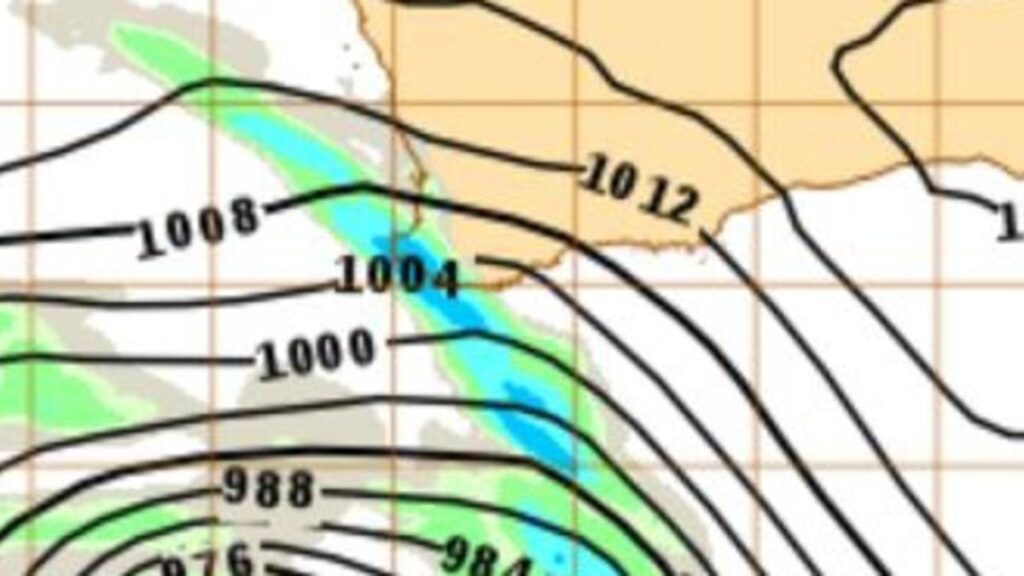
A powerful cold front originating from the Indian Ocean is rapidly advancing towards the Australian continent, bringing with it the threat of damaging winds and heavy rainfall. The Bureau of Meteorology (BOM) has issued a severe weather warning as the system is expected to make landfall on Australia’s southwest coast by Sunday afternoon, impacting cities such as Perth, Bunbury, Albury, and Geraldton.
BOM Meteorologist Angus Hines has cautioned that the weather system is likely to “come in with a bang.” He elaborated, “By tonight, that front will be over parts of the Central West, the Wheat Belt, and the southeast. This front is going to bring some serious weather impacts, in fact, we’ve already got some severe weather warnings in play ahead of its arrival.”
Expected Weather Impact
The cold front is anticipated to bring damaging winds of 90 to 100km/h through Sunday afternoon and evening, with the potential for even stronger gusts, particularly along the West Coast. Mr. Hines highlighted the risk of “serious impact and some serious damage,” especially in areas south of Mandurah.
“We see the potential for some heavy rainfall in quite a short time, but that could be briefly heavy rain, 30 to 60 millimetres of rain in about six hours as that front moves through starting in the west early afternoon,” he added. The combination of wind and rain is expected to significantly affect the southwest later on Sunday, primarily in terms of wind damage. This could result in damage to trees, branches, properties, houses, fences, and outdoor furniture.
Continued Adverse Conditions
The severe weather is not expected to subside overnight. Instead, strong winds, rain, and hail are forecasted to continue battering the southwest throughout Monday. EmergencyWA has advised residents in potentially affected areas to “pack away, secure or tie down” any loose items outside their homes that could be displaced by the strong winds.
Historical Context and Preparedness
This development follows a pattern of increasingly severe weather events attributed to climate change, which has seen a rise in the frequency and intensity of storms affecting the region. Historically, similar weather systems have caused significant disruptions, with power outages, property damage, and even threats to public safety.
Experts suggest that the public heed warnings and take necessary precautions to mitigate potential damage. “Preparedness is key,” said a spokesperson from EmergencyWA. “Ensuring that outdoor items are secured and that emergency kits are ready can make a significant difference in safety and recovery.”
Looking Ahead
As the cold front approaches, authorities are closely monitoring its progress and are prepared to issue further advisories as needed. Residents are encouraged to stay informed through official channels and to follow any instructions issued by local emergency services.
The move represents a significant weather event for Western Australia, underscoring the importance of community readiness in the face of natural challenges. As the situation develops, updates will continue to be provided to ensure public safety and awareness.







